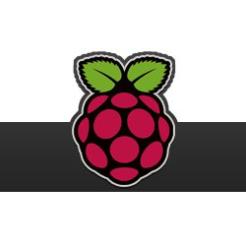John Tate introduces the new big thing in the world of computing.
Something really big is happening in the technology space. Forget the comparatively minor short-term success of the likes of Apple and Facebook. Eat, sleep, drink and dream the Raspberry Pi.
The Pi is a computer around the size of a credit card, selling for approximately £15. Yes, just £15. The product has been developed by the Cambridge-based Raspberry Pi Foundation, which is a registered charity.
A first batch of the Pi has been released and further orders will be shipped shortly. Initial use is envisaged in the education field where children, in particular, can get access to a proper device at a fraction of the cost of a full-blown Microsoft or Apple machine.
Low price
With delivery and a memory card, the base cost is likely to be around £30. It needs to be plugged into a TV, or equivalent, to provide graphics capability, and requires a keyboard which is not included in the base price. It also requires an add-on storage card to save material.
It works as standard with a Linux-based open-source operating system called Fedora, which does not support the Microsoft environment.
It claims to have overall performance “something like a 300MHz Pentium 2, only with much, much swankier graphics”. This is nowhere near as powerful as a PC – but still pretty impressive.
Those of a certain age may remember the BBC Micro which was launched in 1981, leading to over 80 per cent of UK schools having one or more of these machines. At today’s prices it cost about £1,000, and around 1.5million were sold. The Micro was succeeded by products like the Sinclair ZX Spectrum and the Commodore 64. Tens of millions, or more, of these devices were purchased in the 1980s.
This is a very interesting development. A proper base computer for £30 – less than 3 per cent of the cost of a BBC Micro, but with massively more power. So let us have a look at the possible implications of this initiative.
At one extreme it could be argued that people will be reluctant to switch to learning based on the Raspberry Pi. The market is very different from the 1980s. In the UK, virtually all schools already have Microsoft or Apple-based computers and, according to the Office for National Statistics, 75 per cent of UK households have access to the internet.
So the majority of children already have access to a computer device. The Pi works with open source, which tends not to be the standard in schools. Other disadvantages that could be cited include the fact most technical job vacancies currently require Microsoft or Apple skills; the Pi offers only a fraction of the capability of a tablet or PC; it has no camera; and it has a much smaller processer and, currently, a significantly more limited choice of software.
Big prospect
However, I take a different view. Firstly, cost must be a factor in both the education and home market. There is a big difference in price between a £400 iPad and a £30 Pi. Over time this must make an impact.
In terms of the core technology, the Pi environment looks very relevant to ‘cloud’ computing. The ‘cloud’ is being heralded as the next generation of IT – where servers host and run applications, with the user interface being a much simpler web-based device.
Interestingly, mobile devices are increasingly being used as the interface to the web and the Pi technology has a lot in common with this. The core processing chip is an Arm 11, which is used in smartphones from the likes of Apple and Nokia. So I believe that a Pi-type device will, over time, replace the heavyweight PC standard of today.
I think this is the start of something really big. Over the next decade the bloated PC will be replaced by a much simpler device. IT costs will come crashing down – but at a loss to many currently in the IT industry.
Trillions of dollars of IT company valuations are on the line. Watch out for huge marketing spend from those with vested interests to protect, whose future is going to be on the line.
John Tate is a business consultant, IT adviser to CFG and a visiting lecturer at Cass Business School









